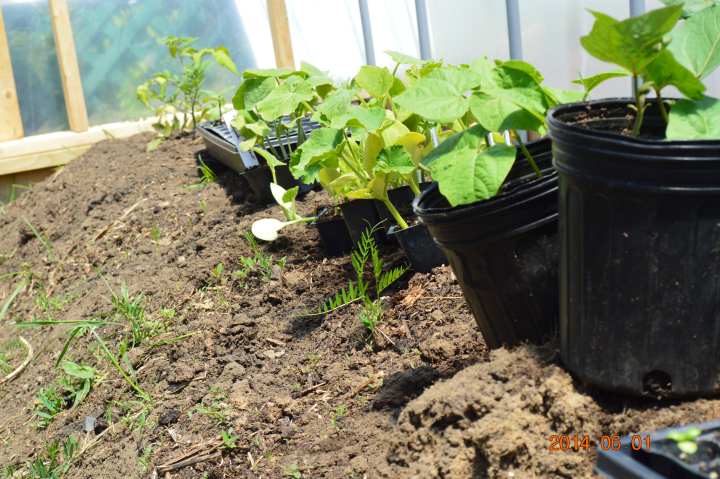
MONTREAL GAZETTE
BY NATALIE GOLDENBERG-FIFE FREELANCE DECEMBER 10, 2010
The holiday season has long been revered as a time filled with joyful activity, laughter, and giving. Yet, just as Christmas time should be about spreading joy, so, too, should summertime. For the past 66 years, Camp Amy Molson has been working to ensure needy youth are not forgotten when school is out.
What began as a overnight summer camp for children from foster homes and orphanages has evolved into an institution with facilities for providing more than 150 children and 70 staff with educational and pleasurable two-week summer sessions. Campers age 5 to 14 are billeted in cabins on a 180-acre lakeside site near Grenville, across the Ottawa River from Hawkesbury, Ont.
Everyone follows a regular schedule, rotating through six periods a day that feature arts and crafts, music, drama, nature lore and sports. The two-week summer sessions are highly valuable to kids who might otherwise be stuck in the city bored, uninspired, and at greater risk of getting into trouble, says Shauna Joyce, executive director of Camp Amy Molson. "Throughout these two weeks, we use teachable moments to educate these kids and build up areas where development is lacking," she said.
"A lot of families coming from poverty have deficits in areas like health and problem solving. We try to address these lifestyle disorders." "There have been many success stories as a result of our campers' experience here."
Popular occasions during the sessions are special theme days devoted to celebrating holidays like Halloween and Christmas that may have been overlooked during the regular calendar year
Joyce says
"Some of our kids come from foster homes, so it is their only chance to spend time with one another as a family," she noted. "We try to actively get kids from the same family to spend these weeks together." Fifty families from Camp Amy Molson will be among the thousands of people in the Montreal area who are to receive $125 cheques from The Gazette Christmas Fund this year. The money helps make the holiday season a bit more cheerful for the needy.
The families Camp Amy Molson has selected for the extra money face a wide range of difficulties, Joyce says, but each shares a tremendous gratitude and appreciation for the help. "One family is suffering from domestic violence, while another is coping with a heart problem and the wait for surgery. There is also a family with a young mother going to school and a young father with four boys at home," she pointed out.
"It is always so rewarding to offer help to families who are so appreciative. Often there are tears. Some of our families are selfless enough to tell us they know others who are in greater need than they are. "It is amazing to see how thoughtful people can be. I am just so happy to be a part of this."
© Copyright ( c) The Montreal Gazette

BY: LAURA ROBI FEBRUARY 23, 2017
Camp Amy Molson is offering kids new ways to get their hands dirty.
The 75-year old summer camp near Hawkesbury, midway between Ottawa and Montreal, added a garden element about five years ago. That garden has grown so much, it now provides the camp with nearly 1,000 kilograms of produce each year and recycles 3,000 kilograms of food waste into compost. Campers in an entrepreneurial program have also harvested basil and made 100 jars of pesto to sell to neighbouring cottagers.
“What’s been exciting about the farm program is that it has expanded every year” says Dane Savoury, the camp’s director. “In 2014, we added greenhouses. In 2015, we added chickens”.
Last summer, the camp took the growing elements one step further: a new one-week program famed Farm, Wilderness and Art Camp was added at the end of August.
“I was really impressed that here’s a summer camp that not only serves inner-city youth from Ottawa and Montreal, but it connects kids and their food system,” says Kai Thomas, 24, who won a grant to run the new farm camp program as a pilot project.
That program, and a harvest event to which all campers are invited to come back in September to share in the bounty, blossomed so deliciously, they are new favourite elements at the camp that was set up in the 1940s to offer a taste of nature to orphans and children in foster homes.
Elijah Qatramiz, 14, has been attending Camp Amy Molson since he was five and was one of 10 who took part in the new Farm Camp last summer.
“I like that I felt I wasn’t so ignorant about Mother Nature anymore,” says Qatramiz, who definitely wants to return to Farm Camp next summer. “It was really fun. We helped out in the kitchen and I learned patience because making food and doing dishes take time.”
Qatramiz, who says he still likes doing dishes now he’s home in Montreal, learned more than kitchen skills.
The weeklong Farm Camp also included planting, watering, weeding, harvesting and a wilderness overnight trip in which the teens and preteens learned about tracking animals, medicinal plants and first aid. “The pilot project as a real success,” says Thomas, who grew up in Ottawa and became interested in food early on since his mother, Jennifer Heagle, is the owner of the Red Apron, which not only offers home-delivered meals, but information about local food and farmers. “We got a lot of positive feedback and pushed our boundaries in terms of what we thought we could do in a week.”
That boundary pushing even included letting the campers watch two chickens being killed and butchered, then helping to prepare them for their dinners. “That was something we thought a lot about before going ahead,” says Shauna Joyce, the camp’s executive director. “We asked the kids if they wanted to experience it, and none of them opted out,” says Liang Cheng, who founded the farm element at the camp. “A lot of the parents said ‘If they want to do it, great. It’s something their grandparents did, but we never experienced."
Qatramiz, who had only ever had chicken from the grocery store before, said it was delicious. “It tasted really good, especially knowing that it hadn’t been given a ton of hormones and things. We did a whole ritual to respect the chicken and how it could give us strength to plant and garden. And in order to respect the chicken even more, we used all of it. We even used the chicken feet to make stock.”
Fees for Camp Amy Molson are offered on a sliding scale according to what families can afford. See campamymolson.com for more information.